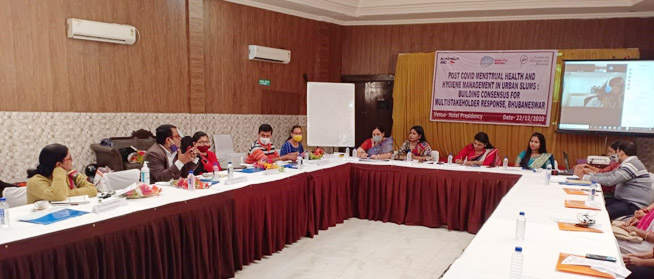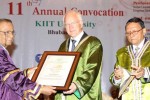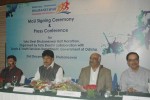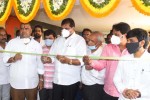Odisha Channel Bureau
Bhubaneswar: A multi-stakeholder consultation on “Post COVID Menstrual Health & Hygiene Management (MHHM) in Urban Slums: Building Consensus for Multi-stakeholder Response, Bhubaneswar” was organised by Centre for Advocacy and Research with support of Water for Women Fund, Australian Government in consultation with experts and implementers from government, bi-lateral agencies and civil society organisations.
The consultation focused on the MHHM challenges faced by women and girls especially post-COVID-19 and specifically during the lockdown period. The aim of the consultation is “to take the learning that the pandemic forced each of us to gain whether as women or girls or as people living in slums or as programme implementers from the government or civil society organisation and to turn into a pathway for building a more cohesive and coordinated response’ stated Soumya Mishra, State Lead, CFAR.

Presenting the background of the entire MHHM intervention that CFAR has undertaken in Bhubaneswar post-COVID, Juhi Jain, Deputy Director, CFAR stated that “the rounds of focus group discussions and interactions we have had with all stakeholders reveals clearly the desire of all sections to come together and address the many complex issues that women and girls face and the consultation is striving to shape consensus and collective understanding of all the issues that impact MHHM.”
Elaborating on this, Arati Jena, ALF President and Single Window Forum Member stated that “one major lesson we learned from the COVID crisis is to be constantly prepared and alert and ensure that vital products like sanitary pads get stocked ahead of such crisis and to do this we have set up a pad bank where we will collect and stock sanitary napkins regularly and not wait for the crisis to descend on us.”
The community was not confident that all concerns and issues can be addressed by them. Speaking about this, Puja Das, a young girl from Barabhuja pointed out that “we have a walk a mile to a marriage hall where dustbins are installed so that we can dispose of the waste and this s not always possible,” she added
Santosh Kumar Rout, Block Education Officer agreed that there is need for greater public awareness on MHM along with safe disposal mechanisms. “System can function efficiently, only with the help of community involvement. The active participation in the discussion on MHM in school with parents and especially the fathers will break the barriers and can shape the thought process of men.” He added that the community can also install incinerator to dispose used menstrual absorbent.
Even more challenging was the situation for Jhumuri Biswal, person with disability, Dumduma Bhoi Sahi. Narrating her experience, she stated that “for me it is even more difficult and so I appeal to all schools and colleges to set up a pad bank with sufficient stock of sanitary napkins with proper collection facilities.” She went on to urge everyone “to understand the challenges they face and deal with it sensitively by breaking the silence.”
Responding to Jhumuri, Swati Rath, Project Coordinator, CFAR, agreed that the silence on MHM must be broken as MHHM is not only a woman’s, but everyone’s business.”
Chayanika Mishra, Program Officer, Life Skill Education Program, UNFPA advised that all the five important aspects of MHM- nutrition, health, menstrual hygiene, collection and final disposal must be part of life skill education to achieve MHHM, women and girls need. She also exhorted men to be part of the endeavour to strengthen MHHM
Taking this forward, Samir Ranjan Das, City Project Manager, CFAR, agreed that male involvement from members of Slum Development Committee (SDC) and Youth Clubs is necessary to make the difference we want to make in the lives of women and girls.
Responding to this, Prakash Bhoi, School Management Committee Member (SMC), Jagamara Bhoi Sahi agreed that they have to play a role because “as a member of SMC I find there is no water supply facility, no proper toilets, no sweepers or peons in school and as a result, girls who get their periods in school, are asked to go back home.”
Balaram Samal, SDC, Barabhuja, took a step further and stated that “we must challenge our own prejudices and take a stand against all the tradition and restrictions and confidently talk about menstruation with everyone around us and especially with men”
Sandhya Devi, Child Development Project Officer reassured the community representatives that the Advika program launched by Odisha Govt to focus on MHHM will be implemented through Anganwadi centres. “This coupled with many programmes and schemes of the Women and Child Development department can make a difference and civil society organizations can help us in strengthening community involvement,” she added
Anurag Panigrahi, Program Officer of Core Foundation stated that MHM value chain should be “strengthened through proper waste management of used absorbent along with plastic and other waste.”
Akhila Sivadas, Executive Director, Centre for Advocacy and Research concluded the consultation by saying “we have to convert all the suggestions proposed by all into actions that have to be taken without any delay”.
She went to suggest that the “three steps that all present at the consultation can strive to take are to strengthen coordinated response, pilot the response in one school and one community to strengthen ability to work together and lastly focus on groups that are being left out, viz. persons with disability and men”.

















